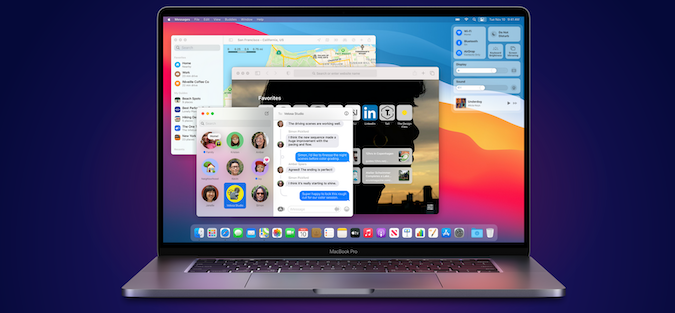The first update released by Apple for macOS Big Sur 11.0 addresses 60 vulnerabilities affecting various components of the operating system.
macOS Big Sur 11.0 was officially launched on November 12 and on the same day Apple released its first update, version 11.0.1. The company has advised customers to update to this version — macOS Big Sur 11.0 comes preinstalled on certain Mac models — but there have been reports that the Big Sur update is bricking some older MacBook Pros.
Some of the 60 vulnerabilities patched by Big Sur 11.0.1 were previously patched in macOS and other Apple operating systems, including three actively exploited vulnerabilities affecting the kernel and FontParser components.
The actively exploited flaws were reported to Apple by Google Project Zero and they can lead to information disclosure and arbitrary code execution. These security holes also impact some versions of iOS and tvOS.
The other vulnerabilities patched with the release of Big Sur 11.0.1 affect components such as App Store, Audio, Bluetooth, CoreAudio, CoreCapture, CoreGraphics, CoreText, Disk Images, Crash Reporter, Finder, FontParser, Foundation, ImageIO, the kernel, libxml2, libxpc, Logging, Mail, Messages, Model I/O, NetworkExtension, NSRemoteView, PCRE, Power Management, Python, Quick Look, Ruby, Safari, Sandbox, SQLite, System Preferences, WebKit, Wi-Fi and Xsan.
Exploitation of the vulnerabilities can allow privilege escalation, arbitrary code execution, access to restricted information from memory or files, DoS attacks, MitM attacks, modifying the file system, spoofing the address bar in Safari, corrupting data (SQLite), and bypassing protections.
What Apple apparently hasn’t fixed is related to apps on Big Sur bypassing firewall and VPN connections. This issue was brought to light in October and experts believed it would likely get fixed until the official release of Big Sur.
Apple last week also released security updates for Safari, to patch an address bar spoofing issue and a code execution flaw related to WebKit, as well as updates for macOS High Sierra and Mojave, to fix the actively exploited vulnerabilities reported by Google Project Zero.
When it announced Big Sur, the tech giant also unveiled the M1, the first system-on-chip (SoC) designed specifically for the Mac. Apple said the M1 was designed from the very start to work with Big Sur, in an effort to improve performance, battery life and security.
Related: Apple Notarizes Six New Variants of ‘MacOffers’ Adware
Related: Apple Unveils Security Features in New M1 Chip
Related: Researchers Get Big Bounties From Apple For Critical Vulnerabilities
